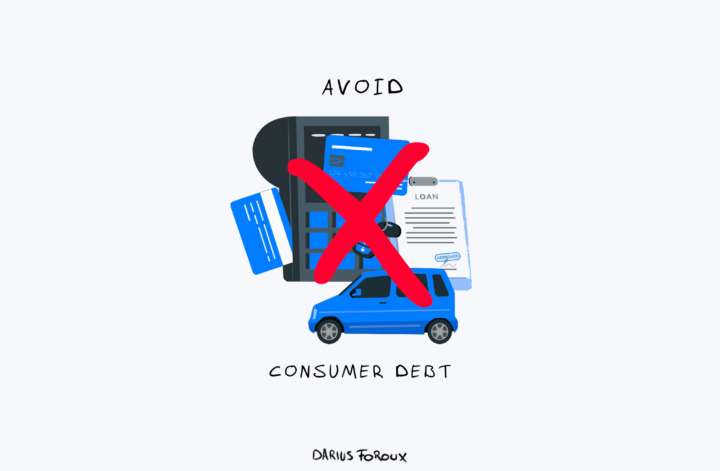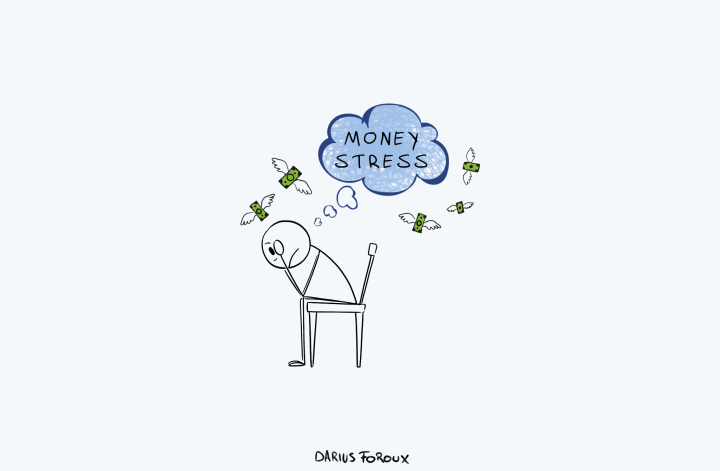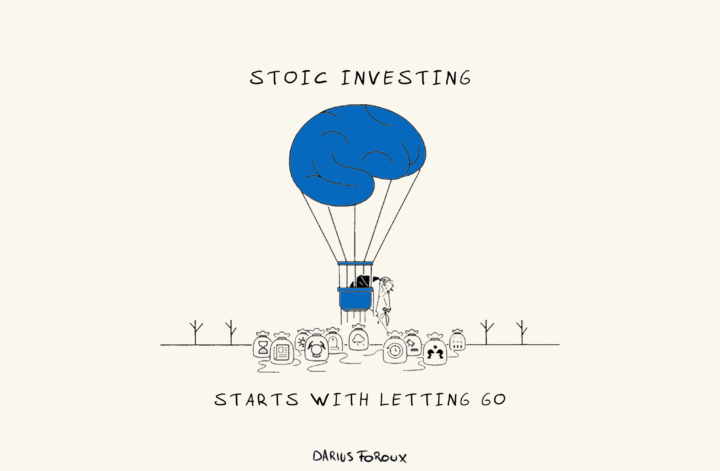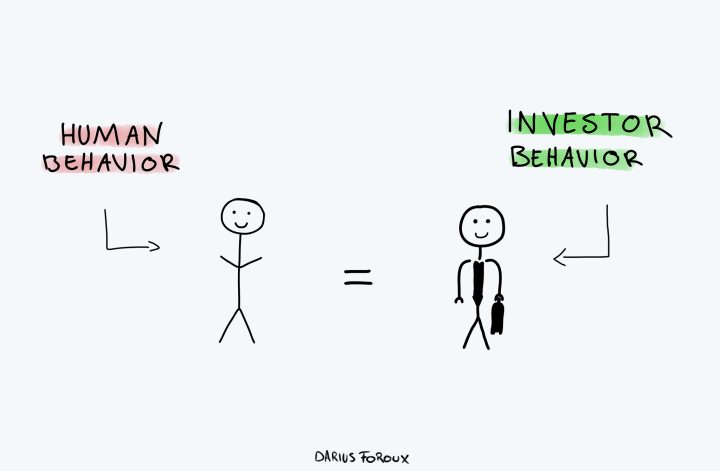Liabilities, like debt, destroy your wealth. When you owe someone money, you don’t own the thing you bought until you pay off your entire debt. This chains you and prevents you from becoming financially free.
It’s an even bigger liability when you go into debt for something that depreciates in value over time.
But when you own assets, you generally build wealth. Think of buying real estate and stocks with your own money. These assets tend to appreciate in value and increase your wealth in the long run.
What matters is that you become a real owner (debt-free). Because as someone with debt, even if it’s for real estate, you still owe other people. So the goal is to become an owner yourself.
The billionaire CEO and author of Shut Up and Listen!: Hard Business Truths that Will Help You Succeed, Tilman Fertitta, said it well:
“I know how to finance something. It’s easier today because, as you’re more successful, everybody wants to do deals with you. But even in the beginning, when I took Landry’s public, I owned 100 percent of it. I never had investors or anything. I was just always able to find a way to do it.”
By being the owner, Fertitta doesn’t have to answer to anyone. That’s the real value of not using other people’s money: You become truly free.
Here are 6 quick strategies to pay off debt if you have it. AND make sure you remain debt-free.
1. Know your numbers
Here’s the thing: When you know how much you’re making versus how much you’re spending, you’ll quickly know what you can or cannot afford.
“Can I afford this vacation right now? Or this electronic purchase, etc.? Without going into debt?”
These types of questions are easily answered when you’ve figured out your numbers. The easiest way to do that, without using a spreadsheet or budgeting too much (which I also don’t recommend), is to apply the 3-account strategy. As long as you do that consistently, your finances won’t go overboard.
2. Take a temporary “consumer sabbatical”
Avoid buying any gadgets, fancy clothes, vacations, or even gifts for a short while. As much as possible, also avoid dining out. You’ll notice how much you can save. And how little you really need to live well — because consumerism isn’t the road to happiness.
The keyword here is temporary. Having a temporary “consumer sabbatical” will help you pay off your debt much faster. And it gives you a very specific timeline (like, say, three months). So you don’t have to be overly frugal forever.
3. Learn personal finance
Staying out of debt is just as important as getting out of it. This is where financial literacy and investing come in.
People who grew up in poorer households tend to know little about personal finance. But thanks to the internet, most of us can learn. So if you’ve always been “bad with money,” then you don’t have to be like that forever.
You can change. And the change is up to you.
4. Avoid credit cards. And NEVER get a car loan
I know some business people who used credit card debt to build their businesses. But eventually, they all started relying more on their own money. So as much as possible, avoid using credit cards. To keep things simple, only buy something when you have the cash for it.
This applies to depreciating items like cars and electronics. If you really need a car, then buy a used one within your budget. Buying consumer goods with borrowed money is bad for your wealth. It also builds the bad habit of buying things you can’t afford with money on hand.
When you get used to buying something without relying on debt, you quickly avoid stuff you don’t really need or want.
5. Start investing slowly
“Why would I want to invest when I’m still in debt?” Because putting your money in an index fund will ensure you’ll have a comfortable nest egg in the long term.
I’ve talked extensively about index investing, which is — for ordinary folks like you and me — one of the best ways to invest.
The great thing about index investing is that you don’t have to be debt-free to start. Think about creating your savings or building an emergency fund. Especially if your biggest debt is your mortgage, you can start those things even while paying off some debt.
You can try investing 50 bucks a month to get used to it. The keyword is slowly.
6. Pay off your high-interest loans first
When you pay off your debt, prioritize them based on their interest rates. Because the longer these debts wait, the higher interest you’ll pay.
Also, you can try to contact your creditor to ask about lowering your interest. This won’t work for all creditors. But it doesn’t hurt to try. And if you manage to negotiate a lower interest rate, then that’s a great win already.
There are plenty of tips online about negotiating lower rates. But I’d keep things simple. Call the company up and be honest. Tell them what you want and why. If the call center agent who picked up your request is an idiot, simply hang up and try again later. Sometimes, the transaction happens better depending on the person you get to talk to.
Money you own is freedom you have
That’s always the best mindset when thinking about money. Whenever you spend on something, that’s a bit of freedom that you’re giving up. So before buying something, always ask yourself:
“Is this item/experience something I’m truly willing to give up my freedom for?”
Also, debt is a personal thing. I think getting into debt for a house is okay. Just make sure you’re not overpaying. There are also others who are okay with using debt strictly for improving their careers. I know a guy who owns businesses and he has a lot of debt.
But personally, I don’t like the feeling of owing someone money. Maybe that’s limiting and others may think it’s a waste of business potential. But I can sleep better at night knowing I don’t have to answer for some creditor.
A debt-free life gives me a content and happy life.




